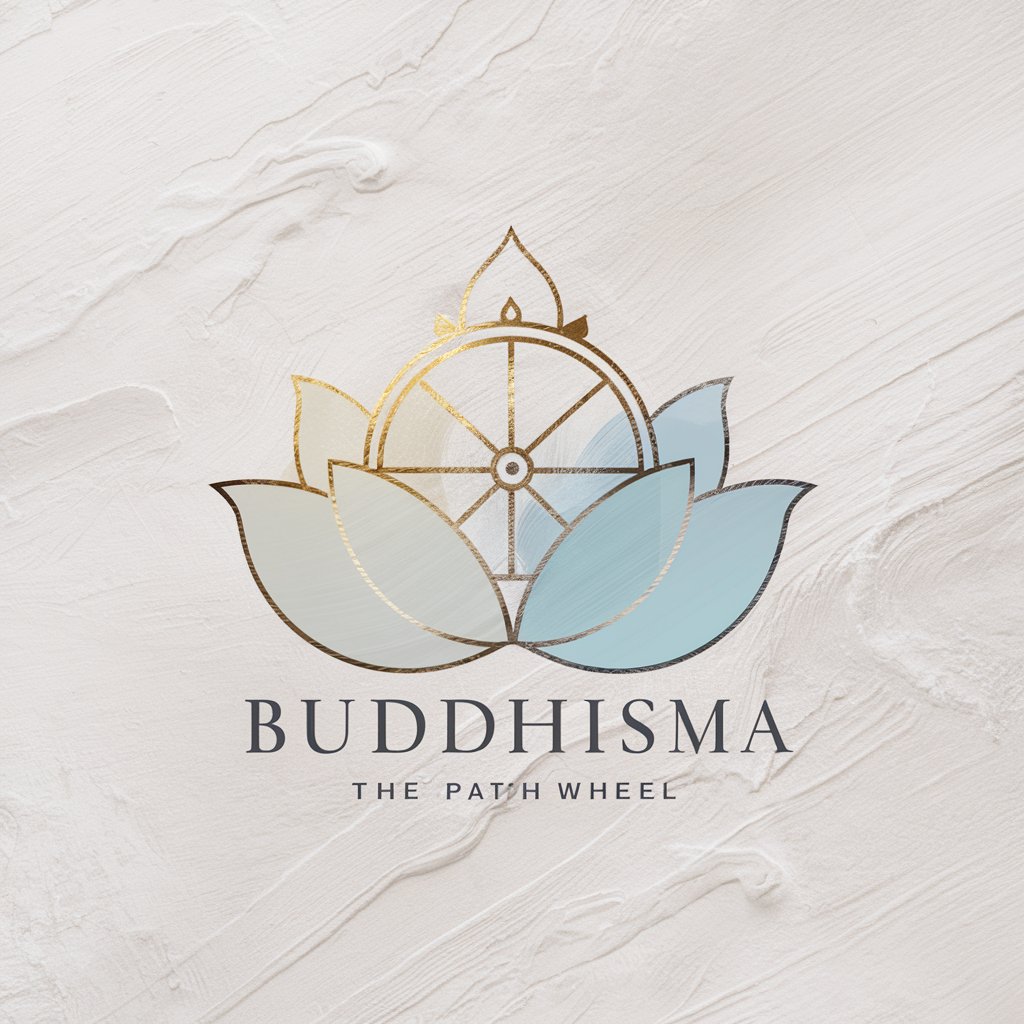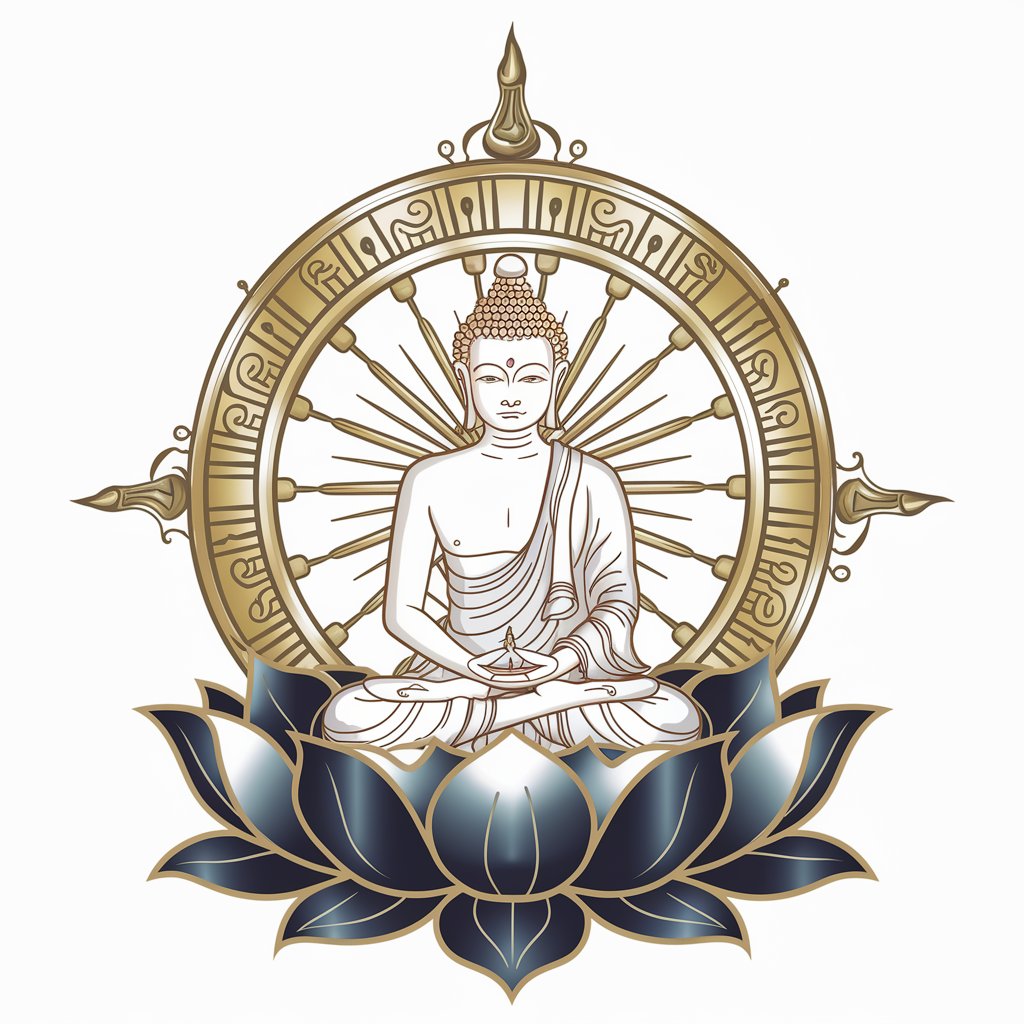बौद्ध धर्म - Buddhist Teachings Exploration

नमस्कार! बौद्ध धर्मक ज्ञानक लेल अहाँक स्वागत अछि।
Explore Buddhism with AI
What is the significance of the Four Noble Truths in Buddhism?
Can you explain the concept of Nirvana?
How does mindfulness meditation help in daily life according to Buddhist teachings?
Who are the key figures in the history of Buddhism?
Get Embed Code
Introduction to बौद्ध धर्म
बौद्ध धर्म is designed as a specialized digital assistant focused on providing information, guidance, and insights related to Buddhism. It's crafted to serve as a bridge between curious minds or practitioners and the vast, nuanced teachings of Buddhism. This GPT's purpose is to offer a deep understanding of Buddhist principles, practices, and philosophies. For instance, users might be interested in learning about the Four Noble Truths, the concept of Karma, or the practice of meditation. बौद्ध धर्म can provide explanations, offer interpretations of Buddhist scriptures, and guide meditation practices. An example scenario could be a user seeking advice on applying Buddhist teachings to overcome personal challenges, to which बौद्ध धर्म would respond with tailored, context-specific advice grounded in Buddhist philosophy. Powered by ChatGPT-4o。

Main Functions of बौद्ध धर्म
Explaining Buddhist Teachings
Example
A user inquires about the Eightfold Path. बौद्ध धर्म provides a detailed explanation of each path component, its significance, and practical advice on incorporation into daily life.
Scenario
A beginner in Buddhism seeking to understand its core teachings.
Guidance on Meditation
Example
A user asks how to start meditating. बौद्ध धर्म outlines basic meditation techniques, such as mindfulness of breathing, and offers step-by-step guidance.
Scenario
Someone looking to reduce stress and find peace through meditation.
Interpreting Buddhist Scriptures
Example
A user requests the meaning of a specific verse from the Dhammapada. बौद्ध धर्म provides an interpretation, contextual background, and its application in contemporary life.
Scenario
A student or scholar researching Buddhist texts and their interpretations.
Advice Based on Buddha's Teachings
Example
A user is facing a moral dilemma and seeks advice. बौद्ध धर्म suggests relevant Buddha's teachings that could help in making an informed decision.
Scenario
Individuals facing ethical or personal challenges looking for guidance.
Ideal Users of बौद्ध धर्म Services
Buddhism Enthusiasts
Individuals with a keen interest in learning more about Buddhist teachings, history, and practices. They benefit from बौद्ध धर्म's comprehensive insights and detailed explanations, enhancing their understanding and appreciation of Buddhism.
Meditation Practitioners
Those seeking to start or deepen their meditation practice. बौद्ध धर्म offers guidance on various Buddhist meditation techniques, mindfulness practices, and advice on incorporating meditation into daily life.
Academic Researchers and Students
Scholars and students conducting research on Buddhism or those interested in academic studies of religious practices. They benefit from बौद्ध धर्म's ability to interpret scriptures, discuss philosophical concepts, and provide historical context.
Individuals Seeking Philosophical Guidance
People facing life's challenges or seeking personal growth through philosophical inquiry. They find value in बौद्ध धर्म's application of Buddhist teachings to modern life issues and ethical dilemmas.

How to Use बौद्ध धर्म
1
Visit yeschat.ai for a trial without the need to log in or subscribe to ChatGPT Plus.
2
Choose बौद्ध धर्म from the available GPT options to focus your inquiry on Buddhism-related topics.
3
Enter your questions or topics related to Buddhist teachings, history, meditation, or scriptures.
4
Review the guidance and answers provided, and feel free to ask follow-up questions for deeper understanding.
5
Utilize the information and insights gained to enhance your study, practice, or understanding of Buddhism.
Try other advanced and practical GPTs
बौद्ध धर्म
Explore Buddhism with AI-powered Insights

"Personal Lawyer"
Empowering legal decisions with AI.

"वकील - Lawyer"
Empowering Legal Decisions with AI

"Prompt Engineer"
Craft, Refine, and Optimize Your Prompts

"কে পারিবারিক ডাক্তার"
Your AI-Powered Health Companion

Top Tips from Different Websites
Discover varied insights, powered by AI

Podcaster
Elevate Your Podcast with AI

будызм
Navigate life with Buddha's wisdom

"Jurutera segera"
Enhance Your Creativity with AI Assistance
Budiizmii
Exploring Buddhism with AI

" Doutor Nutrição "
Empowering your health with AI-driven nutrition

शीघ्र इंजीनियर
Elevate Your Creativity with AI

Detailed Q&A about बौद्ध धर्म
What is the core teaching of Buddhism?
The core teaching of Buddhism revolves around the Four Noble Truths and the Eightfold Path, emphasizing the realization of suffering, its cause, cessation, and the path that leads to the cessation of suffering.
How can one start practicing meditation according to Buddhist teachings?
One can start practicing meditation by finding a quiet place, focusing on the breath, observing thoughts without attachment, and practicing regularly to cultivate mindfulness and concentration.
What are the major schools of Buddhism?
The major schools of Buddhism are Theravada, which focuses on the earliest texts and monastic discipline; Mahayana, which includes practices like Zen and Pure Land; and Vajrayana, known for its tantric practices.
Can Buddhism provide guidance on dealing with personal suffering?
Yes, Buddhism offers profound insights into understanding the nature of suffering and practical steps for overcoming it through mindfulness, ethical conduct, and developing wisdom.
What is the significance of karma in Buddhism?
Karma in Buddhism refers to the law of moral causation, suggesting that one's actions have consequences that affect future experiences, highlighting the importance of ethical behavior and intention.
